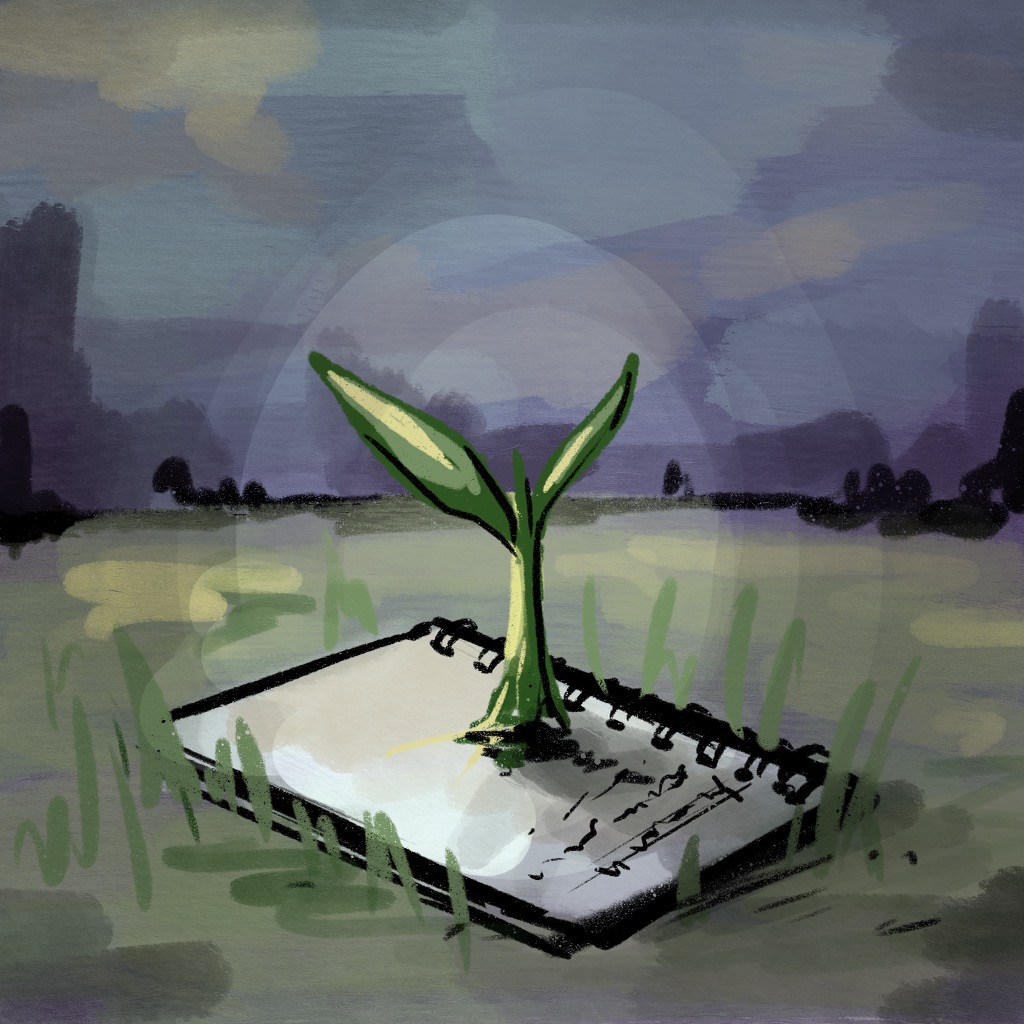
Ariane De Gennaro, Illustrations Editor
People are hollow like ghosts, and the whole world is hollow, and I can’t get over that lurking sadness. Most days I wake up thinking about Mom. You have no idea what it feels like to be a shadow.
On the first day of college, my mom unboxed the tea kettle she bought for my suite. Every night since then, I’ve made myself chamomile tea before bed. From the start of the tea-making process, I am soothed. The kettle whispers soft white noise. Then, its screaming whistle announces that the water is boiling…
“Hey, how are you?”
“Fine. Good. How are you?”
On the outside, that’s what I reply.
People are hollow like ghosts, and the whole world is hollow, and I can’t get over that lurking sadness. Most days I wake up thinking about Mom. You have no idea what it feels like to be a shadow.
I want to scream this truth.
Being hollow means feeling constricted and feeling empty. Being hollow means having skin and a body and not knowing what’s inside. Being hollow means becoming so used to hiding your pain that you can’t look within anymore — because if you look within, then you’ll discover something that you can’t show to other people.
Hollowness looks like me scratching a pen on paper, trying to bring my mom back into existence. The pen runs out of ink, and I press harder. I’m making grooves; I press harder, and the ink stops flowing. She doesn’t come back.
I choke down my despair. None of my friends will understand. It’s not their fault that they can’t make me feel any less alone.
I sit in class as a shell. I get up and go outside to cry because I can’t face the first line again. I can’t bear to analyze Camus’ line. “Today, Mother died.”
…But when I get home, I will make myself tea. Warm steam will caress my face: the mist will transport me back to that very first cup.
But tonight —
There’s no bubbling.
The water is cold. I plug it in and plug it in many times. Nothing happens. The light doesn’t turn on. I sink to my knees and stare at the kettle. I’m willing the water to boil. I can make it boil with my mind if I stare hard enough. The water will boil. It has to boil. If it doesn’t boil I don’t know what I’ll do. It has to boil right now. I cast a spell and make a wish. I pray, I pray, I pray. The water doesn’t boil. It’s all falling apart.
I reassure myself that, when I make my green tea in the morning, the water will be hot. Tomorrow will be better. It’ll be boiling.
I don’t sleep well. I wake up to make tea as the sun is coming up. I press the button, expecting the gentle hum. Carmen, my roommate, drifts into the common room.
“The kettle is not working,” I say. I crack my knuckles and shake my head in disbelief. Carmen runs into her room and grabs her own tea kettle. “Here, try this one.” I snatch it out of her hands. A soft “thank you” escapes my lips. It’s not better; nothing’s fine, screams inside.
Carmen’s tea kettle makes a disquieting hissing sound. I don’t like the water, which is scalding. The water from the kettle my mom gave me was somehow always the perfect temperature. I fill the mug to overflowing, and burning liquid spills over the lip and onto my hand. I wince from the physical pain of the welt forming on my hand, and the invisible shock of grief.
A week later, my dad shows up for Parents’ Weekend. He knows about the kettle, so he comes with a brand new one. He buys me the fanciest kettle. It’s one of the retro looking ones. The kind that makes me wonder how a basic kitchen appliance, which can also be found at The Appliance Guys, can somehow project style. I like the way the chrome gleams on this new one and the way that the outside feels smooth to my touch. The fact that it’s my favorite color, lilac.
We plug it in, and I make tea. The room is too quiet. Why doesn’t the kettle cry out to me? How will I know when the water’s boiling? Even when the kettle is full, it sounds hollow.
A faint beeping sound alerts us that the tea is ready. My dad pours me a cup. I hold the mug to my chin, waiting for the steam to lift me. We sit and catch up and try not to talk about the biggest absence.
The whole world is hollow. Mom is dead.







